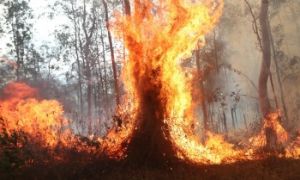

Quality Area 5: Relationships with Children is fundamental in early childhood education as it lays the groundwork for a nurturing and supportive learning environment. Here are some key terms and concepts central to this quality area.
Quality Area 4 focuses on Staffing Arrangements in early childhood education settings. It ensures that educators are qualified, experienced, and collaborative, fostering a positive learning environment for children. Here are some key terms associated with this area.
Quality Area 3 focuses on the physical environment in educational and care settings, as per frameworks like the National Quality Standard (NQS). It emphasizes creating safe, functional, and sustainable spaces that support learning and play. Here are some key terms associated with this area.
Quality Area 2 focuses on children's health and safety within educational and care settings, as per frameworks like Australia's National Quality Standard (NQS). Here are key terms associated with this area:
Quality Area 1 typically refers to ensuring quality in education and care services, especially in frameworks like Australia's National Quality Standard (NQS). It focuses on educational programs and practice. The following article provides explanations and examples of key terms associated with Quality Area 1.
 Here is the list of the EYLF Learning Outcomes that you can use as a guide or reference for your documentation and planning. The EYLF… Read More
Here is the list of the EYLF Learning Outcomes that you can use as a guide or reference for your documentation and planning. The EYLF… Read More
 The EYLF is a guide which consists of Principles, Practices and 5 main Learning Outcomes along with each of their sub outcomes, based on identity,… Read More
The EYLF is a guide which consists of Principles, Practices and 5 main Learning Outcomes along with each of their sub outcomes, based on identity,… Read More
 This is a guide on How to Write a Learning Story. It provides information on What Is A Learning Story, Writing A Learning Story, Sample… Read More
This is a guide on How to Write a Learning Story. It provides information on What Is A Learning Story, Writing A Learning Story, Sample… Read More
 One of the most important types of documentation methods that educators needs to be familiar with are “observations”. Observations are crucial for all early childhood… Read More
One of the most important types of documentation methods that educators needs to be familiar with are “observations”. Observations are crucial for all early childhood… Read More
 To support children achieve learning outcomes from the EYLF Framework, the following list gives educators examples of how to promote children's learning in each individual… Read More
To support children achieve learning outcomes from the EYLF Framework, the following list gives educators examples of how to promote children's learning in each individual… Read More
 Reflective practice is learning from everyday situations and issues and concerns that arise which form part of our daily routine while working in an early… Read More
Reflective practice is learning from everyday situations and issues and concerns that arise which form part of our daily routine while working in an early… Read More
 Within Australia, Programming and Planning is reflected and supported by the Early Years Learning Framework. Educators within early childhood settings, use the EYLF to guide… Read More
Within Australia, Programming and Planning is reflected and supported by the Early Years Learning Framework. Educators within early childhood settings, use the EYLF to guide… Read More
 When observing children, it's important that we use a range of different observation methods from running records, learning stories to photographs and work samples. Using… Read More
When observing children, it's important that we use a range of different observation methods from running records, learning stories to photographs and work samples. Using… Read More
 This is a guide for educators on what to observe under each sub learning outcome from the EYLF Framework, when a child is engaged in… Read More
This is a guide for educators on what to observe under each sub learning outcome from the EYLF Framework, when a child is engaged in… Read More
 The Early Years Learning Framework describes the curriculum as “all the interactions, experiences, activities, routines and events, planned and unplanned, that occur in an environment… Read More
The Early Years Learning Framework describes the curriculum as “all the interactions, experiences, activities, routines and events, planned and unplanned, that occur in an environment… Read More

With the catastrophic bushfires happening in and around Australia it’s only natural that children will...
See more...
There is enough evidence in the history of the world to show the steep cost...
See more...
In the rhythm of early childhood education, the most meaningful moments often happen in the...
See more...© 2009-2025 Aussie Childcare Network Pty Ltd. All Rights Reserved.

